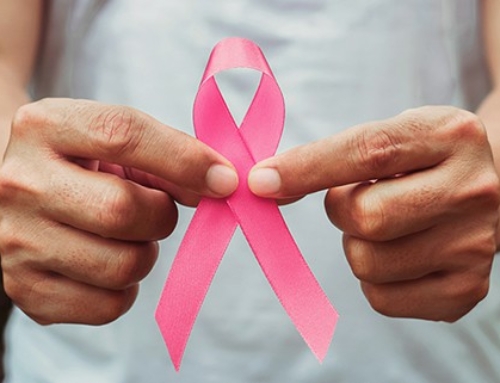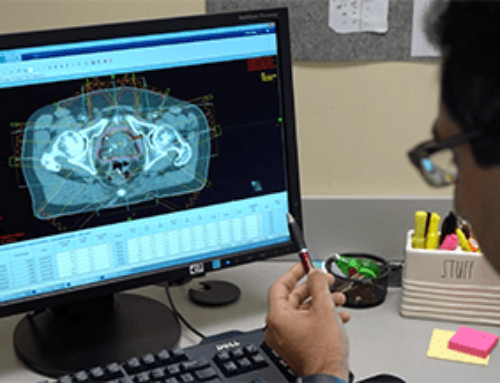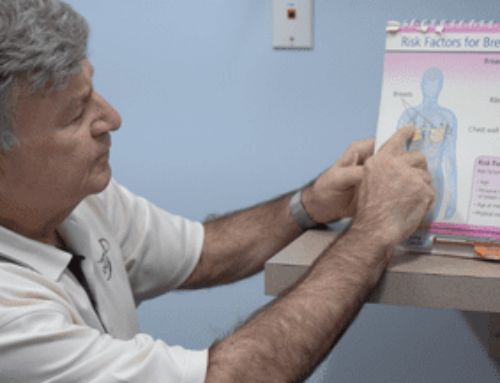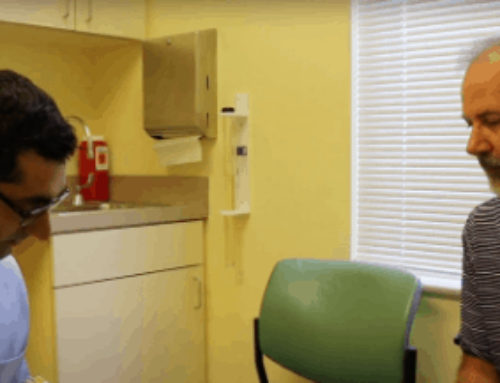Leading cancer care treatment doctor, Steven G. Lester M.D., F.A.C.R.O., co-founder of the Central Florida Cancer Care Center is concerned. He says the fear of COVID-19 has caused many people to delay routine cancer screening–and that could be life-threatening. “We think, if patients continue to skip screenings and they end up being six or 12-months late, we’re going to see more advanced cancers.”
Proactive cancer screening tests are leveraged by doctors to spot the disease before the patient even has symptoms. The American Cancer Society says screening gives you the best chance of finding cancer as early as possible, while it’s small before it has spread.
Why Are Americans Skipping Routine Cancer Screening?
Each year, more than 600,000 Americans die from cancer. More than 170,000 people died from COVID-19 by August, 2020, according to Johns Hopkins data. While people are afraid to go to their doctor for routine care, the reality is that patients are far more at risk from missing routine cancer screenings than they are of contracting COVID-19.
Cancer screenings save lives, but there has been a dramatic dip in preventative cancer screenings since March 2020. That’s when the United States declared COVID-19 a national health crisis. Many states at that time banned non-essential medical procedures, to keep hospital beds open for COVID-19 pandemic patients. That’s when oncologists began to notice patients were skipping routine preventative screening for breast, skin, colorectal, lung, and prostate cancers.
One survey showed that one-third of Americans report they have missed scheduled cancer screens for fear of COVID-19 infection. These preventative screenings save lives, catching many cancers well before they go to less treatable stage where the outcomes are much worse.
This uptick in missed cancer diagnosis and prevention opportunities led to a new projection in Science that suggests we will experience nearly 10,000 excess deaths from just colorectal and breast cancers by 2030. Researchers note this is a conservative analysis that doesn’t even consider other types of cancers that can be caught early by a simple proactive testing process.
Oncologists are worried that those decisions will lead to much higher risks of serious health issues later on.
Dr. Lester confirms, “We would always much rather treat an early stage cancer than a later stage cancer, because we have a higher success rate and we put the patients through less toxic therapy.”
What Types of Preventative Screenings Should Patients Consider?
The most effective types of preventative cancer screening tests are the ones that:
- Detect early cancers
- Have more benefits than harms
- Reduce the chance of dying from cancer
The Centers for Disease Control and Prevention (CDC) recommends the following diagnostic and preventative tests for cancer in adults:
- Colonoscopy screening can detect precancerous polyps that, if left in the colon, could turn into colorectal (colon) cancer
- Digital rectal exam (DRE) and a PSA blood test can screen for prostate cancer
- Low-dose computed tomography (LDCT) is recommended for former heavy smokers to screen for lung cancer
- Mammograms to detect early-stage breast cancer
- Pap smears can detect abnormal cervix cells which could evolve into cancer
The American Cancer Society breaks out preventative cancer screening by age, with the following guidelines in place:
| Age | Gender | Recommended Test |
|---|---|---|
| 21-29 | Men
Women |
|
| 30-39 | Men
Women |
|
| 50-64 | Men
Women |
|
| 65 and up | Men
Women |
|
There is little doubt that screening for cancer is associated with better healthcare outcomes in patients. Regular preventative screening is especially important if you have a family history of cancer. Some of the statistics on the efficacy of these preventative tests include:
- Mammograms correctly identify 87% of women who have breast cancer
- The death rate from colorectal cancer has been dropping due to preventative colonoscopy procedures
- Cervical pre-cancers are diagnosed far more often than invasive cancers thanks to preventative pap smears
- The number of lung cancer cases has declined in part because more people are quitting smoking but also due to preventative screening
- 90% of prostate cancer cases are detected before the cancer has spread throughout the body
Despite these positive signs that preventative care saves lives, oncologists are still worried that patients are afraid to pursue these lifesaving treatments. Dr. Lester confirmed this by saying, “Our concern is if patients don’t continue to be screened, we’re going to get advanced cancers which are less curable and require a lot more treatment.”
Is It Safe to Get My Cancer Screening Tests?
Since the COVID-19 pandemic began, hospitals and other clinical facilities have taken extraordinary steps to keep buildings, staff, and patients safe. Clinical teams have restricted visitors and kept their administrative teams at home. They also check the temperature of everyone coming into a facility and provide medical grade masks. Even before the coronavirus, these facilities practice sterility and cleanliness protocols; today, those efforts are even more stringent.
Patients with concerns they could be exposed to COVID-19 while they go for a cancer screening should ask the staff at imaging centers or their doctor’s office what safety protocols are now in place.





